Oura Ring vs Garmin: I used these two premium fitness trackers at the same time - here's what I learnt
Health journalist Ciara McGinley weighed up Oura Ring vs Garmin Venu 3S side by side through workouts, sleep, recovery and more to reveal all you need to know
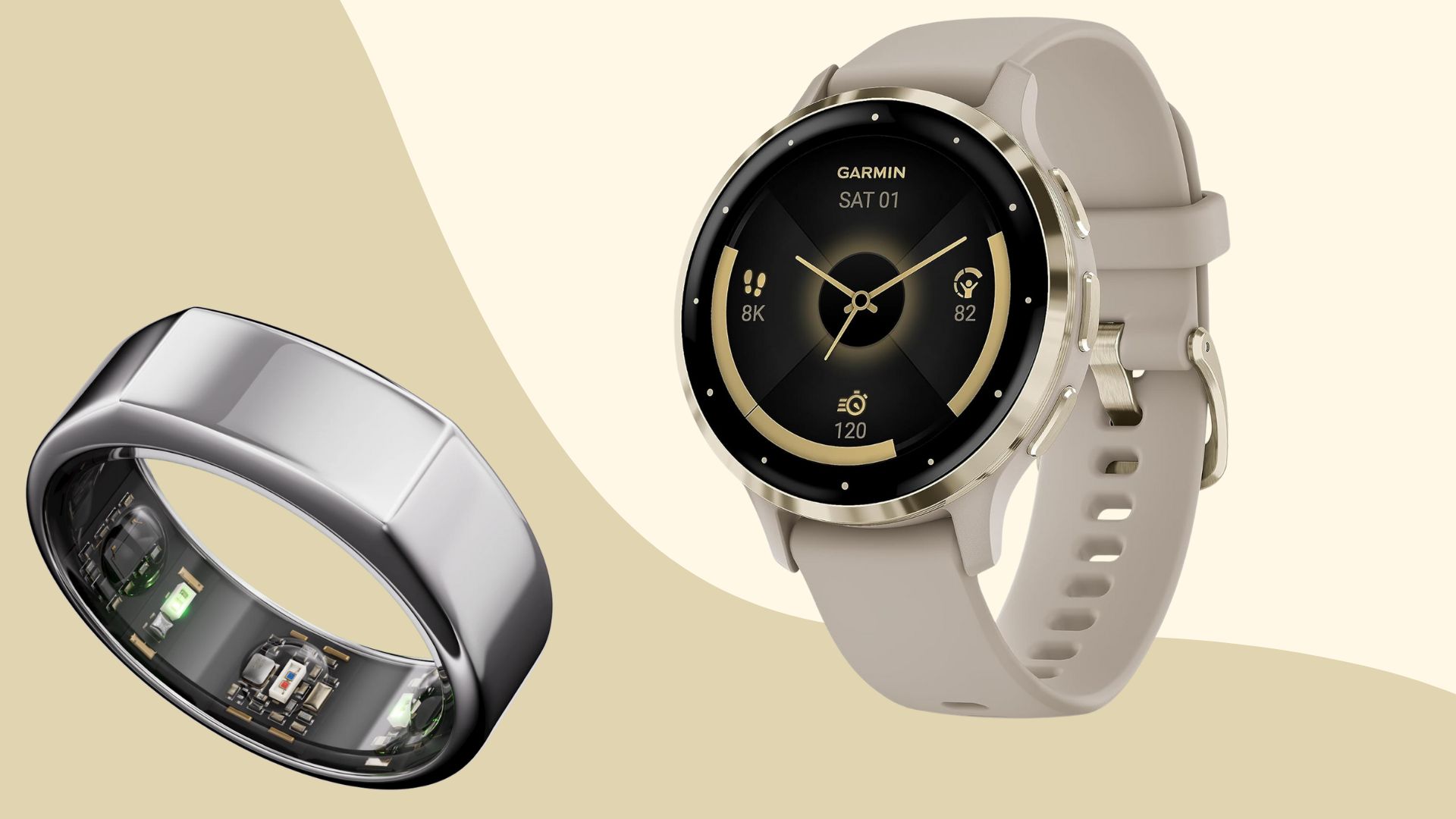

Weighing up Oura Ring vs Garmin for your upgrade? Given that these are two of the biggest brands in fitness tracking right now, it's a debate worth having.
As a health and wellbeing journalist, I’ve tested my fair share of the best fitness trackers and smartwatches, from the best Fitbits and Apple Watches, to, more recently, the Oura Ring and Garmin Venu 3S. While these two premium devices have many of the same features, offering advanced insights into activity levels, sleep tracking, and recovery, notable differences are worth knowing about before you invest.
To help you find the one for you, I’ve put the Oura Ring Generation 3 and Garmin Venu 3S to test side by side, exploring how these wearables track everything from activity and performance to sleep and recovery.
Oura Ring vs Garmin
Oura Ring vs Garmin: An overview
I tested the Oura Ring Horizon Generation 3 for a few weeks earlier this year. As a premium fitness tracker that focuses on rest and recovery over exercise performance, it's a great option for those looking to boost their overall wellbeing by getting into a daily movement routine (not necessarily exercise), start sleeping better, and reducing stress.
The Garmin Venu 3S is one of the newest watches from the sports brand to the market - an upgrade on the Garmin Venu Sq2. It's also a premium fitness tracker that offers general wellbeing insights with a multi-pronged focus across fitness and health, but it's designed for those who regularly exercise or want to start doing so.
It's a hard task to conclude whether one of these fitness trackers is the other. Ultimately, it all comes down to personal preference. Here, we've compared everything from the design, comfort, and fit of the two devices to activity and sleep-tracking abilities to help you find the best wearable for you.
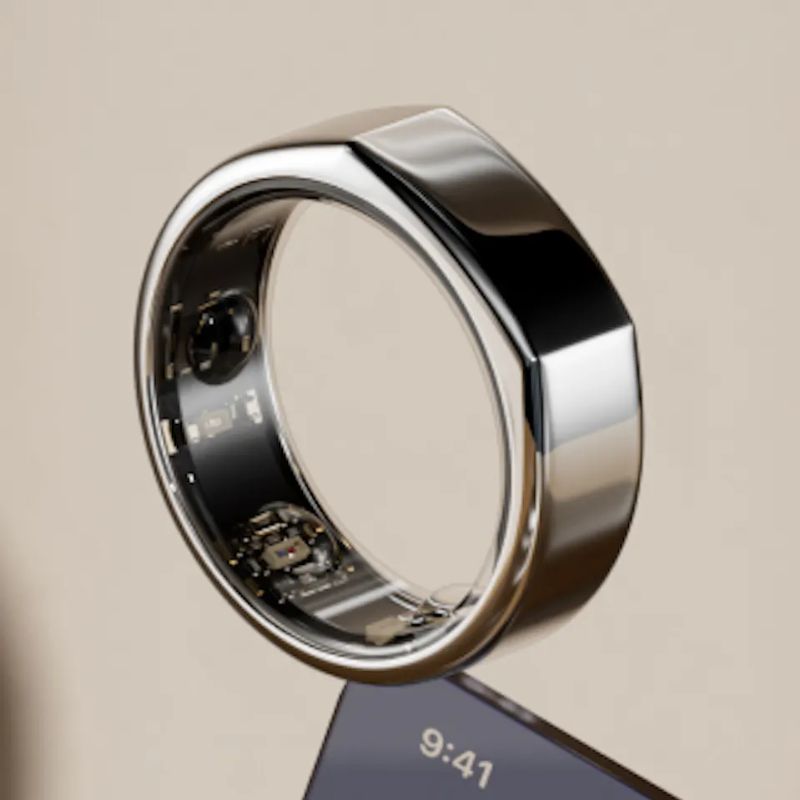
Relatively new to the UK, the Oura Ring is one of the latest and greatest innovations in fitness trackers. It prioritises daily movement, rest and recovery to make improving your health more accessible and easier to track day-to-day. Its advanced technology is represented in the price tag - starting from £299, but this is still much cheaper than the Garmin alternative.
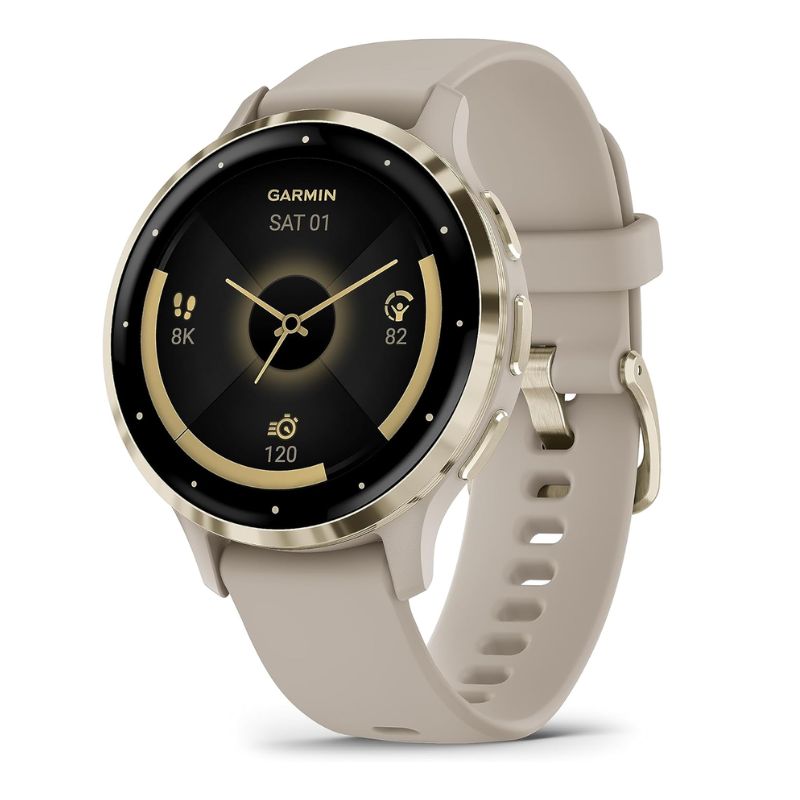
The Garmin Venu 3S is an all-singing-all-dancing fitness tracker that moves seamlessly between exercise sessions and daily life. At just under £450, this is undoubtedly a premium tracker with a premium price tag. But given the advanced health and fitness tracking metrics, versatile wearability, and durability of the device, it's worth the spend if your budget allows for it.
Oura Ring vs Garmin: Design
The key difference between Oura Ring vs Garmin is the design. The Garmin Venu 3S is a sleek smartwatch with a circular watch face and silicone wristband, available in neutral tones and glinting colourways equally at home in the gym as at the dinner table. Three protruding buttons on the side control the watch screen - or you can use the touchscreen.
Sign up for the woman&home newsletter
Sign up to our free daily email for the latest royal and entertainment news, interesting opinion, expert advice on styling and beauty trends, and no-nonsense guides to the health and wellness questions you want answered.
As the name would suggest, the Oura Ring is a ring tracker. It’s sleek, compact and screen-less. It sits on your index, middle or ring finger, and is also available in various colours - but it's much more discreet than the Garmin Venu 3S, being a ring rather than a watch. If you wear a lot of rings, it may not be noticeable at all as the Oura Ring is also available in various metallic and neutral colourways.
I prefer the Oura Ring design for two reasons. When wearing a smartwatch, I'm constantly checking my stats throughout the day, so it's refreshing to have a screen-free device that I can use more mindfully in this always-switched-on world. I also find the Oura Ring more comfortable to wear. The silicone on the Garmin watch strap also irritated the skin on my wrist - it's happened to me in the past with other smartwatches too and this may not happen to everyone.
Activity tracking on Oura Ring vs Garmin
If you're weighing up Oura Ring vs Garmin, it’s likely that a device that an activity-tracking device is important to you. As with most fitness wearables - from the best Fitbits to the newest Apple Watch - the Oura Ring and Garmin track essential activity metrics - including steps, distance and calories burned, while also monitoring your heart rate.
Garmin is best-in-class for tracking activity - especially for walkers, runners, or cyclists who also need accurate GPS. There are 30 pre-loaded GPS and indoor sports apps to choose from and insights post-workout can reveal how your exercise session affects your body, and how much time you need to recover. It's a good choice for those who do just a little exercise and want to do more or those who exercise multiple times a week and take on fitness challenges, but the Oura Ring will be a better choice for anyone who doesn't have this lifestyle or goal.
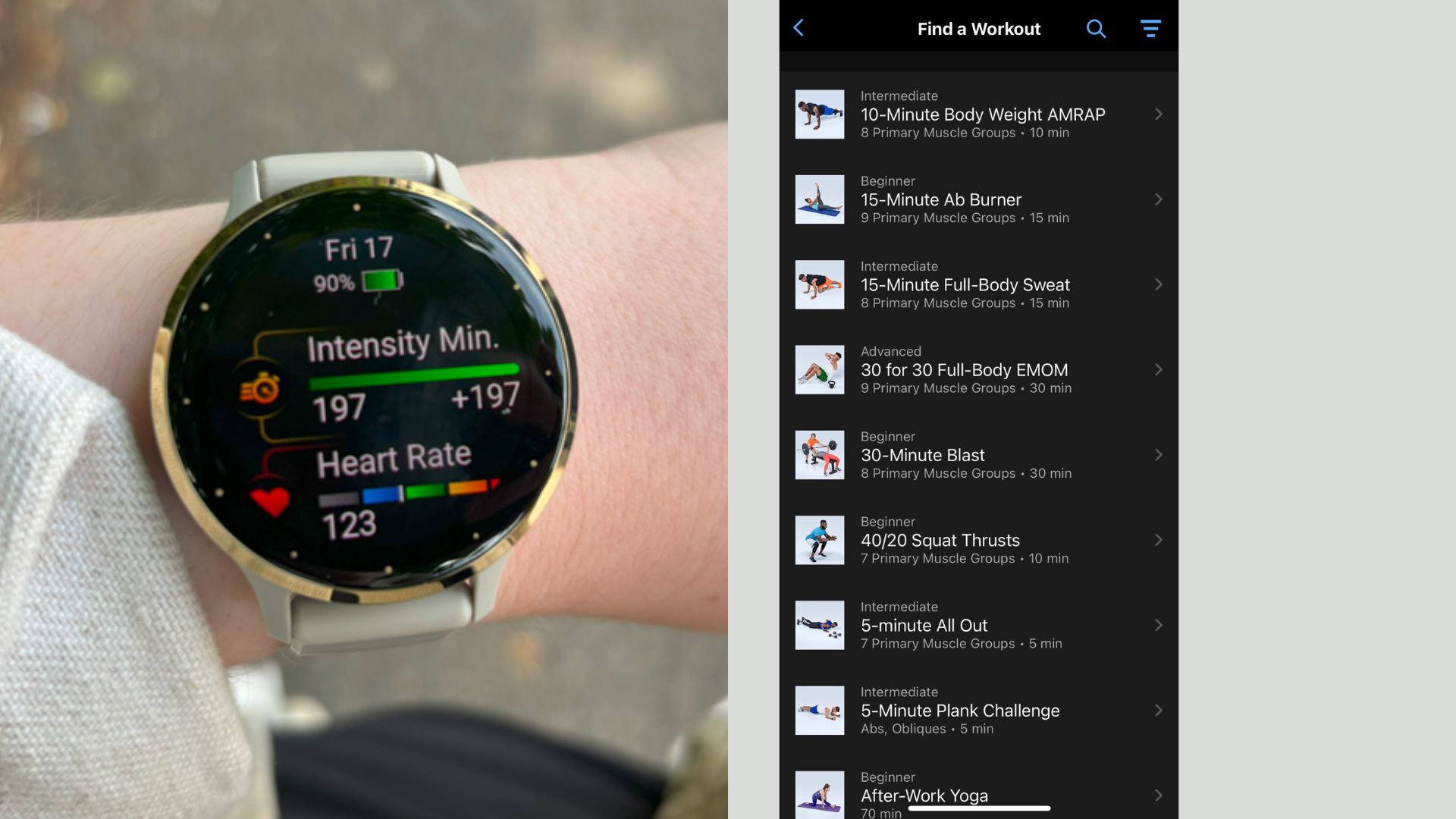
View fitness insights on wrist with the Garmin 3S and send workouts from the Garmin Connect app straight your watch.
The Oura Ring takes a more holistic approach to movement. It counts everything from housework and gardening to walking and running as part of your daily physical activity. You can also record exercise sessions though - anything from swimming to rock climbing, with insights into heart rate variability and performance to rival the Garmin. However, the brand recommends you don't wear the ring during workouts involving heavy weights as the ring may get scratched.
Both devices effectively auto-detected my walks and runs. However, after a very sweaty cardio class that racked up over 200 active minutes (a metric based on the time spent in elevated heart rate zones, according to Garmin), I noticed that neither the Oura Ring or the Garmin Venu 3S had automatically detected the activity. The same was the case for strength training and yoga workouts I did that week, which was disappointing. I was able to add these workouts manually to both devices but would have preferred if they had auto-detected and logged the workouts, so I could have more accurate data and analyse the results in real-time.
If adding more movement into your day is a priority, it’s also worth checking out the Garmin Connect app. Here, you can download animated workouts - from strength and HIIT to yoga - to your watch and follow along on the screen. The Garmin Coach is another excellent app to start your journey to a 5k, 10k or half marathon, with a training plan designed by expert coaches. While there are some similar features on the Oura Ring app, Garmin's offering far outweighs them. If these extra features are a priority for you, it's worth considering the benefits of an advanced Fitbit, like the Fitbit Sense 2, and upgrading to the Fitbit Premium app.
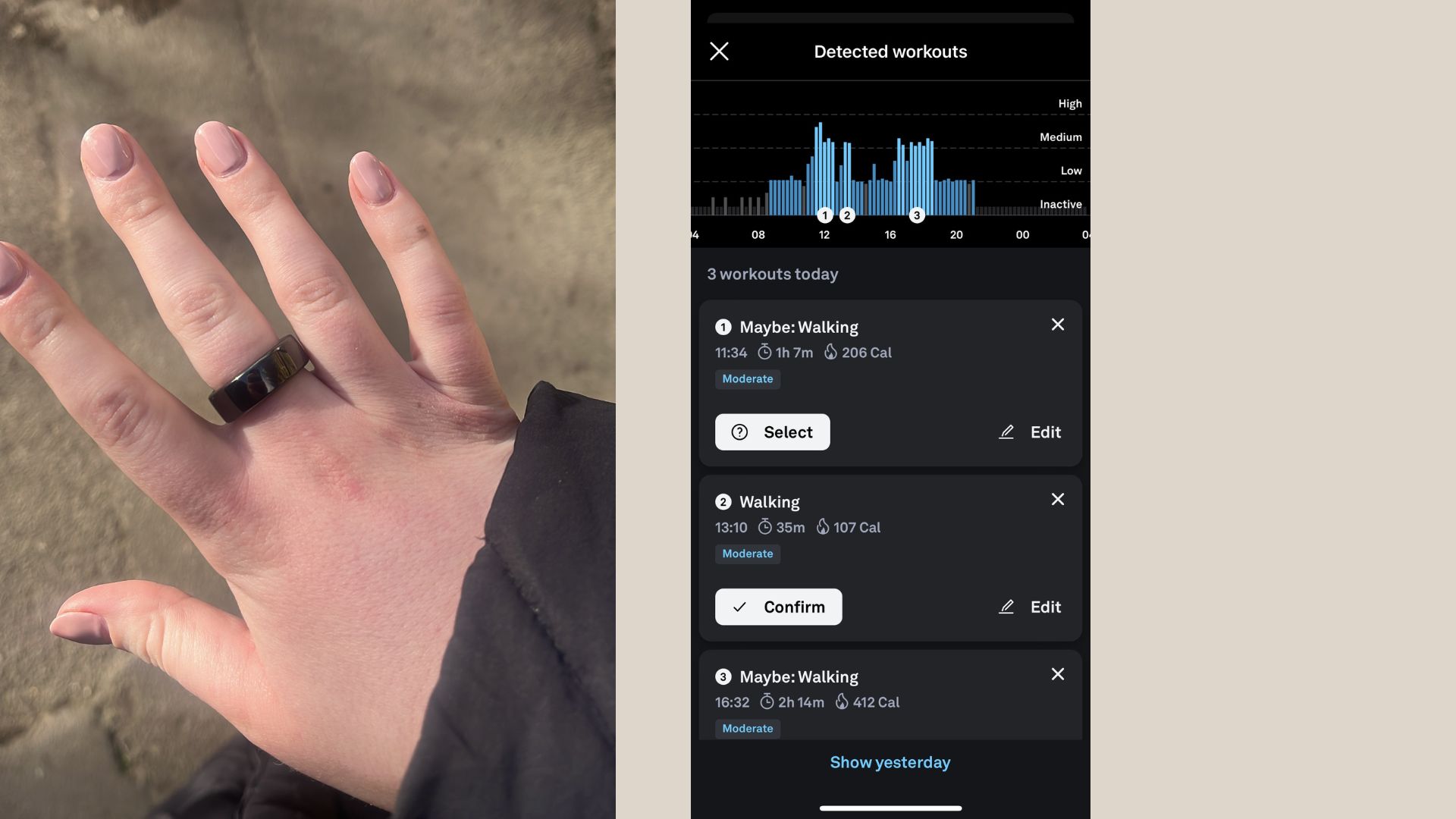
The Oura Ring automatically detects daily movement and exercise sessions, which contribute to your overall movement statistics.
Sleep tracking on the Oura Ring vs Garmin
I've tested a lot of fitness trackers over the years but nothing comes close to the Oura Ring when it comes to sleep tracking - or at least that was the case before I put the Garmin Venu 3S to the test.
Both fitness trackers really excel in this area. They offer detailed insights into sleep duration, sleep stages including REM and Deep Sleep, HRV, respiration rate and skin temperature to give an overall sleep score for an overview of how well you’re sleeping and how this impacts your readiness the following day (more on this later). Plus, both devices offer personalised recommendations on how to improve your sleep. These recommendations are standard on the Oura Ring but are unique to the Garmin Venu 3S.
However, when testing out the Oura vs Garmin, there were some differences in the sleep results between the devices. For example, the Oura Ring often tracked more REM sleep than Garmin. It’s hard to tell which one is more accurate here, but one thing was clear: I needed to brush up on my sleep score, which had been heavily impacted by travel, a heavy workload and HIIT workouts in the weeks before testing the devices. Although I already knew this as I was going to bed later, getting up earlier and feeling tired throughout the day, it was a good reminder of how it was impacting my overall wellbeing.
Thankfully, both devices offer insights into how to sleep better, from suggested bedtimes to recommended sleep durations, and advice on reducing my daytime stress. Both Oura Ring and Garmin also have a library of meditation and breathwork practices, which I enjoyed using at nighttime to close out my day, and I noticed they did help me nod off quicker.
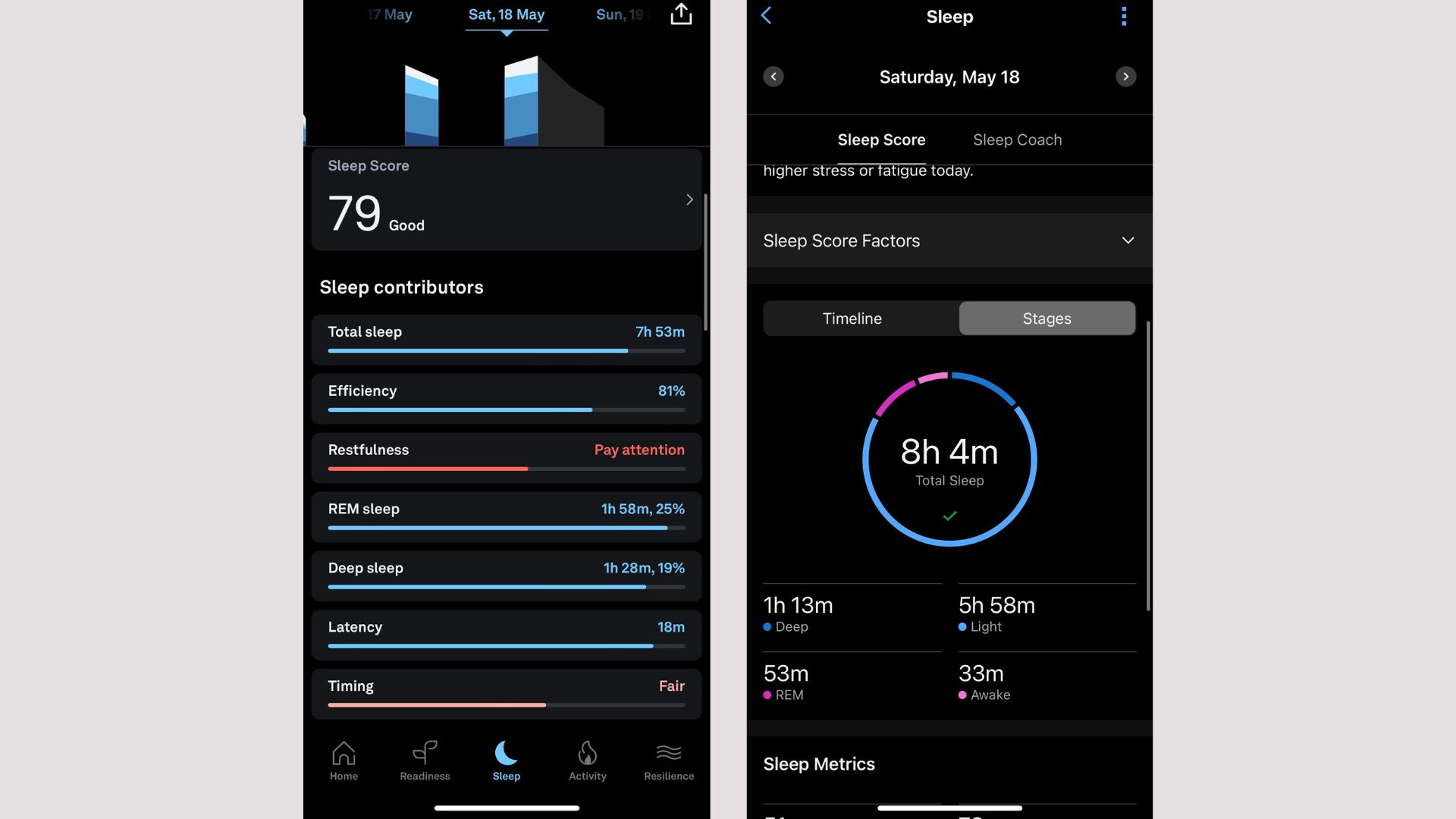
Both Oura Ring (left) and Garmin (right) offer detailed statistics into sleep.
Oura Ring vs Garmin: Readiness Score
Getting an insight into how well my body has recovered is one of the best features of any fitness tracker. This feature is known as the 'readiness score' and is available on most fitness trackers under various names, including other Garmin devices, Fitbits, Apple Watch, and more. The score is based on your activity levels, sleep score, and stress response. The device then offers a score (normally out of 100) for how ready your body is for exercise. If the score is low, you should take a rest day or switch your high-intensity workout for a low-intensity one. If your score is high, go for it. Both the Oura Ring and Garmin Venu 3S offer a Readiness Score but in slightly different ways.
The Oura Ring has a readiness score that considers your resting heart rate, body temperature, sleep and the previous day’s activities. These help you better understand if your body is ready for a day of high-energy activities or needs more time to recover and rest. The Oura Ring will give a Resilience Score, which shoes show how well you balance stress levels and recovery.
On Garmin, the readiness score is called the 'Body Battery'. It gives an insight into how your energy levels change throughout the day, draining when your body and mind are stressed or increasing when you take time out to recharge, which can help you to prioritise more downtime in your day. Post-workout, it will also share your estimated recovery time.
Of course, it’s important to remember that if a fitness tracker is telling you you’re well rested but feel exhausted, you should listen to your body and prioritise rest. I find it fascinating to learn more about how my body recovers and these insights really encourage me to tune into what my body needs and honour that throughout the day.
Health monitoring on Oura Ring vs Garmin
The latest fitness wearables don’t just track sleep and activity, they also help to monitor your overall health - from cycle tracking to heart rhythm irregularities. Although they must never be used as a diagnostic tool, they are helpful for providing a broader picture of your health that you might not have otherwise. You can also take the report to your doctor for consideration if you have a particular issue. Whether irregularities show up in your data or you feel something is off, it’s always worth reaching out to your doctor for advice.
Both the Oura Ring and Garmin have menstrual cycling tracking abilities, giving an insight into how each stage of your menstrual cycle may impact you and helping to predict your menstrual phase. For those going through perimenopause, this can be a particularly useful tool to manage symptoms. The more information you log daily the more accurate these predictions will be.
For the globetrotters amongst us, the Garmin also has a Jet Lag Adviser providing personalised insights into how jet lag might impact your body and tips to minimise the effects.
Other noteworthy health monitoring features include blood oxygen technology on both devices, providing an insight into oxygen levels in the blood for a wider view of overall health. Oura’s chronotype evaluation helps you capitalise on your sleep patterns, and Garmin’s VO2 max technology provides a measure of your current cardiorespiratory fitness to help you set goals. Oura is due to release a new Cardiovascular Age metric, which will tell users their estimated heart age relative to their chronological age, giving an insight into how their current behaviours impact their long-term health.
Oura Ring vs Garmin: Price
Both fitness wearables are an investment. The Oura Heritage starts at £299 or £349 for the Horizon, while the Garmin Venu 3S starts at £449.99. Although, at the time of writing, the Garmin device is on sale at Amazon from £359.99.
When buying an Oura Ring, you’ll first need to order a sizing kit to ensure you choose the right size ring. The kit comes with eight plastic rings of different sizes. Once you find your perfect fit, you can then order your Oura Ring from the UK website.
To get the most from the Oura Ring, you’ll need to opt into the brand’s £5.99 monthly subscription. Without it, I don’t think the Oura Ring is worth investing in as you won’t have access to all your data.
If you're looking for a fitness tracker on your finger that doesn't have the same subscription model, it's worth looking at the Samsung Galaxy Smart Ring. This device is very similar to the Oura Ring in many ways and all data is available without a subscription.
With Garmin, you don’t need to buy additional apps or subscriptions to access your data or participate in activity challenges.
Oura Ring vs Garmin: Which one is better?
Oura Ring vs Garmin - which one is better? It's a tough question and particularly difficult to answer because it all comes down to personal preference. Whether you’re weighing up the Oura Ring vs Garmin Venu 3S or a Fitbit vs Apple Watch, it all comes down to what you're after from a fitness tracker or smartwatch.
For those who want to zone in on sleep and recovery, the Oura Ring does it best. Looking at overall health and wellbeing from the lens of rest and recovery, offering a detailed insight into sleep and counting all movement as an activity for a more holistic approach. On the other hand, the Garmin Venu 3S is a smartwatch with all the bells and whistles. It tracks sleep like the Oura but it offers more detailed insights into workouts and can guide you through workouts on-screen. It also displays smartphone notifications, allows on-wrist texting with Android devices, supports contactless payments and Spotify connection, and it has safety tracking features.
Ciara McGinley is a meditation practitioner and health journalist. She qualified as a meditation teacher with the British School of Meditation in 2020 and is the founder of Finding Quiet, a series of classes, workshops and retreats that combine meditation practices and mindfulness techniques to make mindful living realistic in an always-switched-on modern world. She is all about bettering that mind-body connection but believes wellness looks different to everyone.
Ciara is also the former Health Channel Editor at woman&home and has covered all things health and wellbeing for years, from fitness to sleep to relationships.
-
 How to watch Race Across the World from anywhere - stream the BBC reality series online
How to watch Race Across the World from anywhere - stream the BBC reality series onlineThe acclaimed reality series is back for a highly anticipated fifth outing, and there's no need to miss out on any of the action
By Lucy Wigley
-
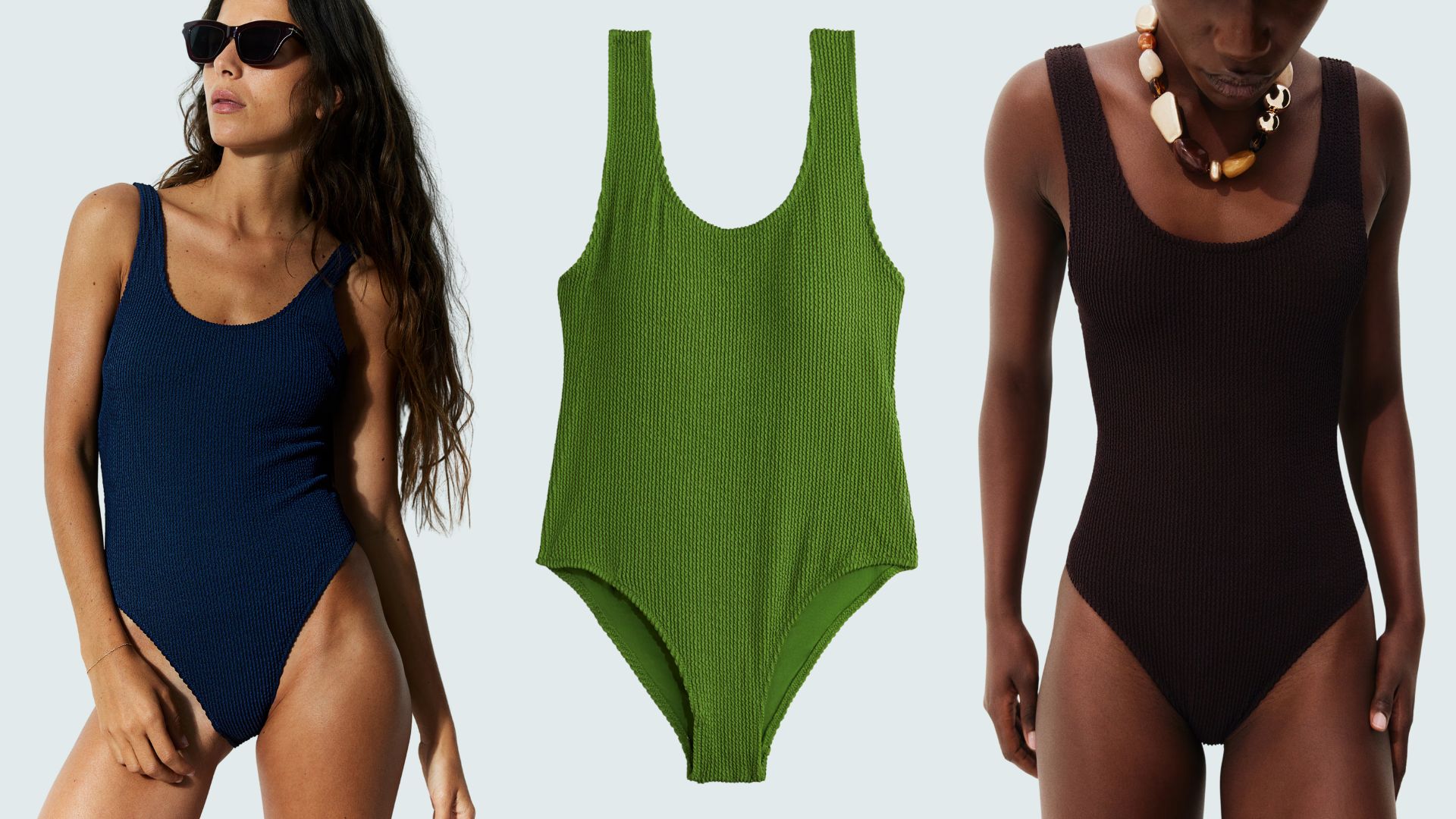 I thought my swimsuit buying days were done after splashing out on a designer style - then I discovered this must-have H&M option
I thought my swimsuit buying days were done after splashing out on a designer style - then I discovered this must-have H&M optionPriced at just under £25, the H&M padded-cup swimsuit seriously surprised me
By Caroline Parr